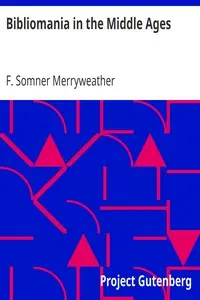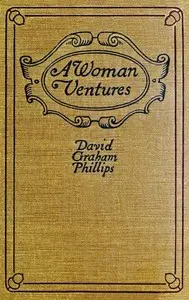"Rhoda Fleming — Volume 3" by George Meredith is a book that explores the tough Victorian times, diving into love, what society expects, and the problems people face. It mainly follows Edward and Algernon's complicated love lives and how they deal with controlling characters, like Mrs. Lovell, which brings big fights and hard choices. The beginning creates a stressful environment where what people think is right clashes with what society thinks. Edward has to face the results of his actions with the help of Mrs. Lovell, who stirs up trouble between the men. When Algernon wants to defend his honor, things get intense, highlighting feelings of jealousy, what it means to be a man, and old-fashioned ideas of courage, with underlying connections that suggest the characters will have to deal with love, responsibility, and their social status.

Rhoda Fleming — Volume 3
By George Meredith
In a society ruled by honor, a man must confront love, jealousy, and social standing when rivalries ignite and a woman manipulates desires.
Summary
About the AuthorGeorge Meredith was an English novelist and poet of the Victorian era. At first, his focus was poetry, influenced by John Keats among others, but Meredith gradually established a reputation as a novelist. The Ordeal of Richard Feverel (1859) briefly scandalised Victorian literary circles. Of his later novels, the most enduring is The Egoist (1879), though in his lifetime his greatest success was Diana of the Crossways (1885). His novels were innovative in their attention to characters' psychology, and also portrayed social change. His style, in both poetry and prose, was noted for its syntactic complexity; Oscar Wilde likened it to "chaos illumined by brilliant flashes of lightning". Meredith was an encourager of other novelists, as well as an influence on them; among those to benefit were Robert Louis Stevenson and George Gissing. Meredith was nominated for the Nobel Prize in Literature seven times.
George Meredith was an English novelist and poet of the Victorian era. At first, his focus was poetry, influenced by John Keats among others, but Meredith gradually established a reputation as a novelist. The Ordeal of Richard Feverel (1859) briefly scandalised Victorian literary circles. Of his later novels, the most enduring is The Egoist (1879), though in his lifetime his greatest success was Diana of the Crossways (1885). His novels were innovative in their attention to characters' psychology, and also portrayed social change. His style, in both poetry and prose, was noted for its syntactic complexity; Oscar Wilde likened it to "chaos illumined by brilliant flashes of lightning". Meredith was an encourager of other novelists, as well as an influence on them; among those to benefit were Robert Louis Stevenson and George Gissing. Meredith was nominated for the Nobel Prize in Literature seven times.


















